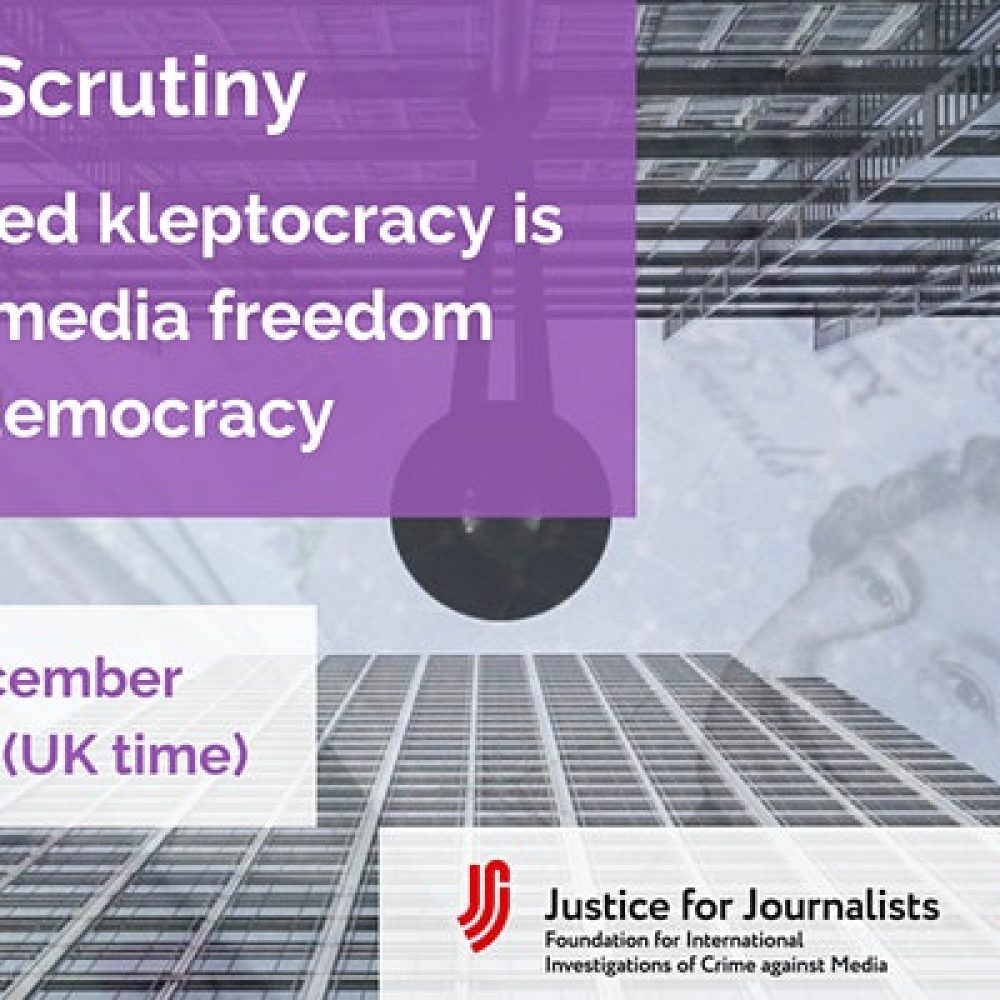Join Justice for Journalists Foundation and the Foreign Policy Centre for International Anti-Corruption Day to explore what can be done by the US, UK and other governments to push back against kleptocracy as well examine the ongoing challenges for journalists working to expose corruption facilitated through Western financial and legal systems. The full video recording of the webinar is available here. Audio recording is available here.
Speakers:
- Catherine Belton, Journalist and author of ‘Putin’s People’
- Casey Michel, Journalist and author of the upcoming book ‘American Kleptocracy’
- Maria Ordzhonikidze, Director of the Justice for Journalists Foundation
- Dr Sue Hawley, Executive Director of Spotlight on Corruption
Chair: Dame Margaret Hodge MP, Chair of APPG on Anti-Corruption & Responsible Tax
Background:
Successive global journalistic investigations, including the recent Pandora Papers, have increasingly uncovered the extent of global ‘kleptocracy’. Political and business elites from countries with limited democratic freedoms such as Russia, Azerbaijan, Saudi Arabia and Angola, to name a few, have been repeatedly shown to be re-appropriating the wealth of their nations for personal and political gain.
Western financial and legal systems are far from passively servicing this corruption. Aside from utilising anonymous shell companies to launder dirty money and parking it in luxury property, kleptocrats are also seeking to control their image and garner influence in the West. Law firms and PR companies enable this reputation laundering, including through initiating legal threats against those seeking to investigate apparent wrongdoing or share concerns regarding dirty money being used for political or charitable donations.
While media freedom in a kleptocrats’ home countries is often highly restricted, with corruption often motivating and enabling violations against independent voices, these legal threats (often referred to Strategic Lawsuits against Public Participation – SLAPPs) can be seen as a ‘legitimate’ way to suppress information in countries like the UK and US. Such legal action can however have a significant impact, draining a media outlet of its financial resources, and creating a wider chilling effect on media freedom.
The proliferation of kleptocratic practices, and their influence, are raising concerns that Western democracies are effectively being eroding ‘from within’. The US response under President Biden has been to classify corruption as ‘a core national security interest’. ‘Historic’ legislation has already been passed through US Congress, taking aim at ending anonymous business practices and proposals have been made for an Enablers Act, which would require greater checks by lawyers, PR firms, accountants and others as to the source of their client’s money.
By contrast, concerns raised about illicit finance flowing through the UK, including in the Russia Report released by the Intelligence and Security Committee in July 2020, have resulted in little action from the UK Government. Legislative initiatives proposed to create greater transparency and reduce the risk of money laundering – namely to create a register of overseas entities and their beneficial owners – have not progressed since 2018. At the same time, the UK has been identified as the leading international source of legal threats against journalists working to uncover financial crime and corruption.
This event is hosted by Foreign Policy Centre, as part of its ‘Unsafe for Scrutiny’ project, kindly supported by the Justice for Journalists Foundation.

